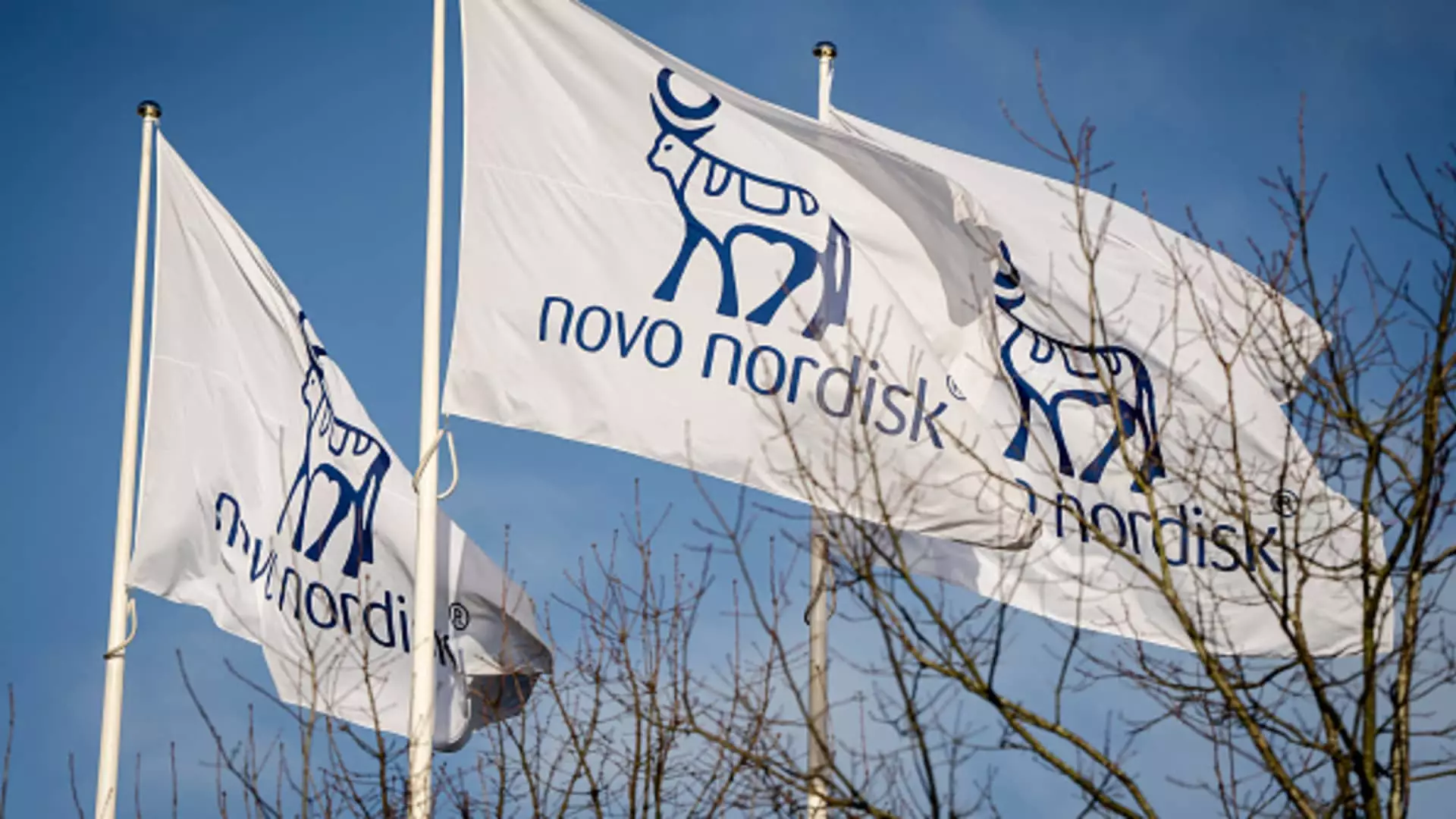Novo Nordisk’s recent announcement about its diabetes medication Rybelsus reflects a significant stride in the intersection of diabetes management and cardiovascular care. At the recent American College of Cardiology’s Annual Scientific Session, the company revealed that in a late-stage clinical trial, Rybelsus demonstrated a remarkable 14% reduction in the risk of cardiovascular-related incidents such as heart attacks and strokes among diabetes patients predisposed to heart disease. This presents not just a sharp rebuttal to the narrative that diabetes medications lack true effectiveness, but a tangible beacon of hope for millions managing the dual chaos of diabetes and heart issues.
Traditionally, diabetes treatments have focused primarily on glycemic control, often overshadowing the importance of cardiovascular health. With almost half of the diabetic population also suffering from heart disease, the heart-healthy properties of Rybelsus could revolutionize treatment approaches by addressing both diabetes and its often-compounding cardiac implications. With the advent of such multifunctional medications, the conventional wisdom around managing these chronic diseases is likely to shift dramatically.
Convenience Meets Efficacy
One of the most compelling facets of Rybelsus is its oral formulation. Historically, many effective diabetes therapies have been injection-based, causing discomfort and anxiety among patients who harbor a fear of needles. By providing a once-daily pill, Novo Nordisk opens the door for a wider array of patients to engage confidently with their treatment. These patients may not only experience an increase in adherence to their diabetes regimen, but they might also find themselves more empowered in their healthcare decisions.
This transition toward oral medication is indicative of an evolving landscape in diabetes care. Gough, the global chief medical officer at Novo Nordisk, emphasizes the necessity for diverse treatment options. In a world where patient-centered care continues to gain traction, having an oral alternative could dramatically enhance the quality of life for many individuals wary of injections.
The Clinical Impact is Unmistakable
Delving into the statistical outcomes of the clinical trial further cements the worth of Rybelsus. Among over 9,600 participants aged 50 and older, those taking Rybelsus saw a decreased risk of non-fatal heart attacks by an impressive 26% when compared to patients on a placebo. Additionally, the data showed a substantial drop in non-fatal strokes (12% lower) and cardiovascular-related deaths (7% lower). Numbers like these speak volumes; they translate into real lives saved and a significant decrease in morbidity related to cardiovascular events.
Importantly, the segment of the population that involved SGLT2 inhibitors, a common adjunct in diabetes management, did not mitigate the positive effects of Rybelsus, nor did they significantly alter kidney function outcomes. While the Rybelsus trial primarily focused on cardiovascular outcomes, the results seemed to validate the existing hypotheses regarding the broad-ranging benefits of GLP-1 receptor agonists. This could likely set the stage for further research into the medication’s nephroprotective properties down the road.
Countering Criticism with Results
However, amid these promising outcomes lies an ever-present challenge associated with medication: side effects. While Rybelsus does exhibit gastrointestinal issues such as nausea and diarrhea — common in this class of medication — the fact that such side effects rarely led to discontinuation is critical. This directly counters concerns surrounding medication adherence, maintaining the argument that the benefits of Rybelsus outweigh the drawbacks significantly.
Beyond mere statistical validation, these results are crucial when framed against the backdrop of a healthcare system that often prioritizes low-cost options over efficacy. If innovative medications that demonstrate superior health outcomes are sidelined on cost grounds, we might miss out on addressing the pressing public health challenges of diabetes and heart disease.
Future Implications for Treatment
Novo Nordisk’s proactive approach to involving the FDA and EU for expanding Rybelsus’s approval demonstrates a strategic commitment to enhancing its therapeutic footprint. The success of this initiative will set the stage for deeper shifts in how diabetes, and comorbid heart diseases, are approached holistically in clinical settings. As other pharmaceutical companies, like Eli Lilly, enter or expand their footprint in the oral GLP-1 market, one can anticipate a competitive race that ultimately benefits patients.
The long-term implications of these findings are potentially transformative. With the burden of diabetes continuing to escalate globally, innovations like Rybelsus may not just be viewed as enhancements; they should be seen as essential pivots towards a future where comprehensive health solutions are carefully integrated into how we treat chronic diseases. It’s an optimistic yet cautious sentiment that encourages continued advocacy for robust and diverse treatment options within medicine—a pursuit that aligns with the evolving dynamics of healthcare.

